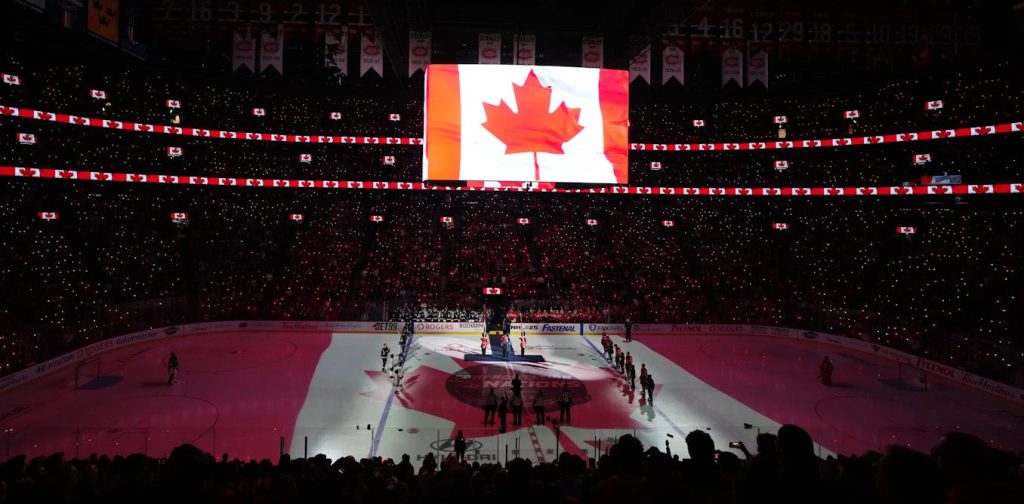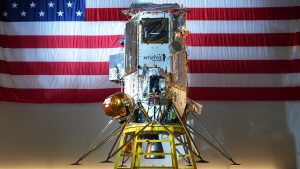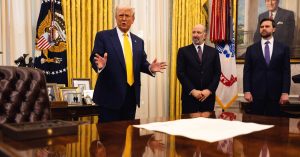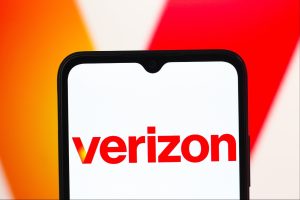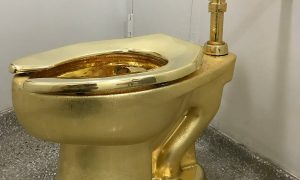Canada emerged victorious in the 4 Nations Face-off hockey tournament on Feb. 20, but the event was overshadowed by growing political tensions between Canada and the United States.
In the lead-up to the final game, American fans booed the Canadian national anthem, likely in response to Canadian fans booing the American national anthem ahead of a game between the two teams on Feb. 15.
This was not the first recent airing of grievances from Canadian fans at a sporting event. Following U.S. President Donald Trump’s announcement of tariffs against Canada and repeated calls for Canada to become the 51st state, fans at a Toronto Raptors game and Ottawa Senators game booed the American national anthem.
Read more:
How Donald Trump’s attacks on Canada are stoking a new Canadian nationalism
Despite the proposed tariffs being postponed for 30 days, Trump’s antagonistic vision for Canada-U.S. relations has stoked anti-American sentiments among Canadians, including calls to boycott American goods and a deteriorating belief in close Canada-U.S. relations.
Those anti-American sentiments boiled over again when Canada faced the U.S. in Montréal, showcasing how sport can be used as an expression of nationalism — especially at a time of increased tensions between the two countries.
Why sports matter politically
It’s not surprising that sport has become an arena for nationalist political rhetoric. Sport possesses powerful symbolism that can be exploited to great affect in forming a coherent national identity.
In this way, sporting events are a way fandoms can reinforce national identity as an objective symbol that connects to primitive forms of national ideology.
Sport is also a powerful psychological setting for national rhetoric. A person’s social identity, or how they see themselves in relation to others, can be reinforced through sport. This can happen, for instance, when someone views themselves as a member of a team and celebrates their success, or views a rival team or country in a negative light after a loss.
Additionally, the outcome of a game can boost in-group favouritism, which can influence whether consumers buy goods from a specific vendor.

THE CANADIAN PRESS/Frank Gunn
Nationalism versus patriotism
Generally, research suggests sports reinforce a national in-group identity that is more patriotic than nationalistic. However, the vitriol Canadians have expressed during the American national anthem leans towards expressing nationalist views rather than patriotic ones.
Patriotism typically focuses on why a country is great without necessarily disparaging outsiders or other countries. Nationalism, on the other hand, tends to play up why one’s country is great while vilifying another country or group.
Trump’s focus on using tariffs to bully Canada into increasing security at the border has undoubtedly soured relations between the two countries. If Trump decides to flex the United States’ capacity to be a bully in U.S.-Canadian relations, Canada is stuck with limited options.
But are Canadians playing right into Donald Trump’s hand by leaning into an adversarial relationship?
How Trump uses sports for political gain
Trump has a history of using major sporting events to his political benefit. During his last presidential campaign, he attended the Army-Navy football game and became the first sitting president to attend the recent Super Bowl in New Orleans.
Trump also considered attending the 4 Nations final between the U.S. and Canada in Boston, but couldn’t attend due to a scheduled speech with U.S. governors. Still, he made his presence felt by calling the American team the morning before the game to wish them luck.
Looking ahead, Trump may continue to use international sporting events to assert his vision for U.S. relations with Canada and Mexico.
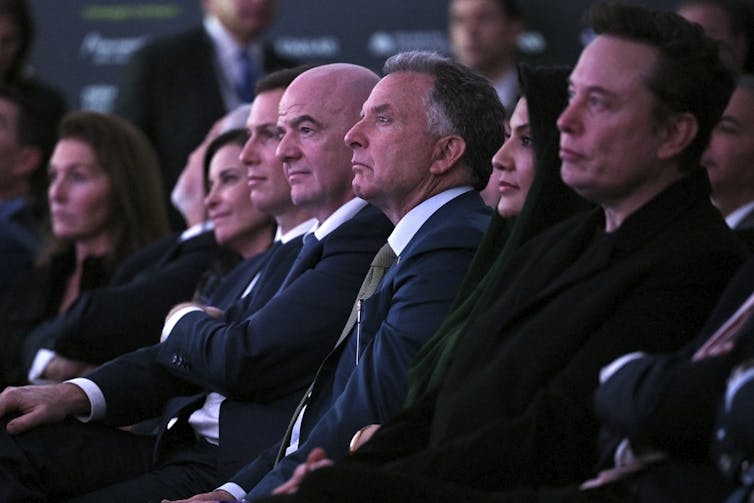
(Pool via AP)
In January, Trump invited Gianni Infantino, the head of FIFA, to his inauguration, just as preparations have begun for the 2026 World Cup, which is to be hosted by Canada, Mexico and the U.S.
With Infantino and Trump becoming increasingly friendly, it seems likely Trump will use the upcoming World Cup to influence North American relations. At the very least, he will likely try to insert himself into its coverage.
Trump using sport to reinforce his image
Beyond politics, Trump uses sports to play into his crafted image as a hyper-masculine man. This image has played a large part in Trump’s popularity among young men and helped him win a second term as president.
Yet Trump does not necessarily fit the masculine norms his supporters lionize. Trump is fairly tall, which has been shown to be preferred among American voters. However, unlike past presidents such as Dwight D. Eisenhower and Richard Nixon, who played college football, Trump’s athletic background is limited to high school football.
Nor did Trump serve in the military like previous presidents John F. Kennedy and Ronald Reagan, both of whom served in the Second World War. Trump, by contrast, avoided service during the Vietnam war for medical and educational reasons.
Despite a lack of traditional masculine bonafides, Trump has shown an ability to use sporting events for his political gain. He has used sporting events as potent media environments to insert his talking points and burnish his masculine image.
In the end, the boos from Canadian fans may be music to Donald Trump’s ears. He wants to be hated by outsiders so he can turn around to his supporters and say that the U.S. is under attack at its borders. He wants the sporting accomplishments of the American men’s teams to reflect on his strength.
It can still go against him, as we saw Thursday night with Canada beating the U.S. in overtime. Justin Trudeau wasted no time using that moment to respond with strong rhetoric in a tweet.
What happened on the ice was out of Trump’s control. But he used the event to serve his own goals, sowing greater divisiveness across borders. The shadow of his combative rhetoric loomed large over the entire event.



